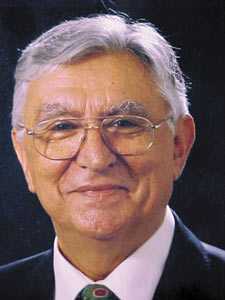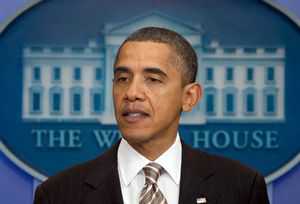
The article which states ” In the first, the AKP is a party of religious deception that seeks to bring all elements of the government under its control. Its hidden goal is the eradication of the secular state, the wrenching of Turkey from the West, and, ultimately, the imposition of Islamic law.”.
Regards
AHMET SUE R [[email protected]]
R [[email protected]]
President, TASAA (Turkish Society of Augusta and Aiken):
- WALL St JOURNAL
- MARCH 13, 2010
Coup plots and growing extremism. Why the West can’t ignore Turkey’s paranoia
- By CLAIRE BERLINSKI
Last fall, having observed that few women in Istanbul took martial-arts classes, I conceived the idea to work with local instructors on creating a women’s self-defense initiative. My project met with initial enthusiasm, particularly among women concerned with the high rate of domestic violence in Turkey. But other martial arts instructors in the city grew uneasy, sensing a plot to swindle them out of their small pieces of the martial-arts pie. Istanbul quickened with lunatic rumors that the initiative was a conspiracy to disparage the other instructors’ martial prowess and steal their students. Martial-arts cliques consumed themselves with plotting and counter-plotting. Secret tribunals were held, covert alliances formed, poison-pen letters sent, friends betrayed. I gave up in disgust.
No one familiar with the prominent role of conspiracies and paranoia in Turkish social and political life will be surprised. Last month, more than five dozen military officers were arrested and charged with plotting a coup. The detained stand accused of planning to bomb mosques and down Greek fighter jets as a pretext for toppling the government. Whether it is true, I don’t know. But either way, the country is drowning in persecutory theories.
Turkey’s strategic and economic significance to the West is massive—and American-Turkish relations took a turn for the worse earlier this month when a U.S. congressional committee recommended the full House of Representatives take up a vote on a resolution condemning the slaughter of Armenians in the Ottoman Empire as genocide.
Turkey is a rarity in the Middle East, a democracy with a secular constitution. It has the second-largest army in NATO; it provides a crucial energy route to Europe. The Incirlik air base is a crucial staging point for the US military. Turkey has made a sizable contribution to the coalition forces in Afghanistan. It has a seat on the U.N. Security Council, and could be a vital diplomatic partner—or a vexed antagonist—to America throughout the Middle East and Islamic world.
The West, understandably, is concerned about the trouble in Turkey. Particularly disturbing is the growing anti-Israel animus of Turkey’s foreign policy and its growing intimacy with the most extremist regimes and parties of the Islamic world. Turkey’s trade with Iran is galloping. Turkey’s Prime Minister Recep Tayyip Erdogan was the first international figure to host Hamas. He has called for the expulsion of Israel from the U.N. while offering diplomatic support for the denial of genocide in Darfur.
Turkey has seen three military coups in the past half century—by definition, you can’t have a coup without a conspiracy. The military, which conceives itself as the guardian of Turkish democracy and secularism, has intervened, most recently in 1997, to unseat prime ministers who have veered too far off the secular rails.
The ruling Justice and Development Party, known as the AKP, came to power in 2002. Its senior figures rose from the ranks of virulent—and banned—Islamist parties, but the AKP claims to be moderate.
Almost everyone in Turkey subscribes to one of two conspiracy narratives about this party or its antagonists. In the first, the AKP is a party of religious deception that seeks to bring all elements of the government under its control. Its hidden goal is the eradication of the secular state, the wrenching of Turkey from the West, and, ultimately, the imposition of Islamic law. In this narrative, the specter of the sect leader Fethullah Gülen, who has undefined ties to the party and has taken exile in Utah, arouses particular dread. His critics fear he is the Turkish Ayatollah Khomenei; they say that his acolytes have seeped into the organs of the Turkish body politic, where they lie poised, like a zombie army, to be awakened by his signal.
The second version holds that the AKP is exactly what it purports to be: a modern and democratic party with which the West can and should do business. Mr. Gülen’s followers say the real conspirators are instead members of the so-called Deep State—what they call a demented, multitentacled secret alliance of high-level figures in the military, the intelligence services, the judiciary and organized crime.
Neither theory has irrefragable proof behind it. Both are worryingly plausible and supported by some evidence. But most significantly, one or the other story is believed by virtually everyone here. It is the paranoid style of Turkish politics itself that should alarm the West. Turkey’s underlying disease is not so much Islamism or a military gone rogue, but corruption and authoritarianism over which a veneer of voter participation has been painted.
The system does not look too undemocratic on paper. Turkish political parties are structured, in principle, around district and provincial organizations. There is universal suffrage, but a party must receive 10% of the vote to be represented in Parliament. Party members elect district delegates, district presidents and board members. Yet Turkish prime ministers have near-dictatorial powers over their political parties and are not embarrassed to use them.
It is theparty members, not voters, who pick the party leader. Members of Parliament enjoy unlimited political immunity, as do the bureaucrats they appoint. The resulting license to steal money and votes is accepted with alacrity and used with impunity. Corruption and influence peddling are the inevitable consequence. Business leaders are afraid to object for fear of being shut out.
Conspiracies flourish when citizens fear punishment for open political expression, when power is seen as illegitimate, and when people have no access to healthy channels of influence. They give rise inevitably to counterconspiracies that fuel the paranoia and enmity, a self-reinforcing cycle. Throughout Turkey is the pervasive feeling that no one beyond family can be trusted.
The common charge that the AKP is progressively weakening the judiciary and the military is objectively correct, as is the claim that this concentrates an unhealthy amount of power in the hands of the executive branch. Yet the prime minister and his intimates insist that their actions are defensive. “For 40 years, they have kept files on us. Now, it is our turn to keep files on them,” AKP deputy Avni Doğan has said.
Their enemies voice the same worldview. “When you look at Turkey today, it is as if the country has … fallen under foreign occupation,” the leader of the opposition CHP party Deniz Baykal has said.
Paranoia is inevitably also grandiose. When the House Committee on Foreign Affairs passed up the recent resolution to describe the massacre of Armenians in the First World War era as a genocide, Suat Kiniklioglu, the spokesman of the Foreign Affairs Committee of the Turkish Parliament, explained Turkey’s outrage thus: “I think the Americans would feel that same if we were to pass a resolution in our parliament talking about the treatment of [native] Indians in this country.”
Mr. Kiniklioglu speaks fluent English; he has spent years in the West. Yet he is blind to the most obvious of facts about American culture: No one in America would give a damn.
Meanwhile, discussion of Turkey’s most serious social and economic problems—corruption, poverty, unemployment, and a legal system held in contempt even by its attorneys—has been eclipsed. Reports of economic miracles under the AKP have, as everyone now understands, been exaggerated by statistical legerdemain. This is all too easy to do, because Turkey has one of the largest underground economies in the world, worth somewhere between one-third and two-thirds of the country’s GDP. Every major economic sector in Turkey is largely off-the-record. No one can say confidently whether these sectors are growing or shrinking, and even officially, Turkey now has the second-highest rate of unemployment in Europe. This is hardly the mark of an expanding middle class.
Among the most serious of Turkey’s problems, ignored in the constant din of mutual accusations, is the grave seismic risk to Istanbul. The city’s position on a highly active fault line and the prevalence of shoddy construction make it not only possible but probable that it will be the world’s next Port-au-Prince. The death and displacement of half a million Turks in an earthquake would clearly be the end of any hope of stability and peace in this region.
The failure to prepare for this predictable event is a betrayal of trust, like so many the Turkish people have suffered. Each deepens the paranoia. Each citizen believes that to survive, he must lie and conspire. Everyone assumes everyone else is lying and conspiring against him because he himself is lying and conspiring.
Turkish Ambassador Namik Tan recently said that the West “must understand that in this region, two plus two doesn’t always equal four. Sometimes it equals six, sometimes 10. You cannot hope to understand this region unless you grasp this.”
Psychiatrists are typically advised to attempt to form a “working alliance” with the paranoid patient, avoid becoming the object of projection, and provide a model of non-paranoid behavior. This is also sound advice in diplomacy.
But paranoia is known to be a particularly intractable disorder. Those who experience it do not trust those trying to help them. The West should keep this, too, in mind, for the paranoid spiral here could easily do what spirals are known to do: spin out of control.









